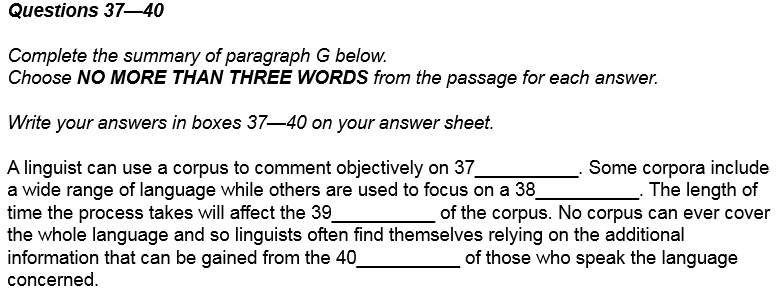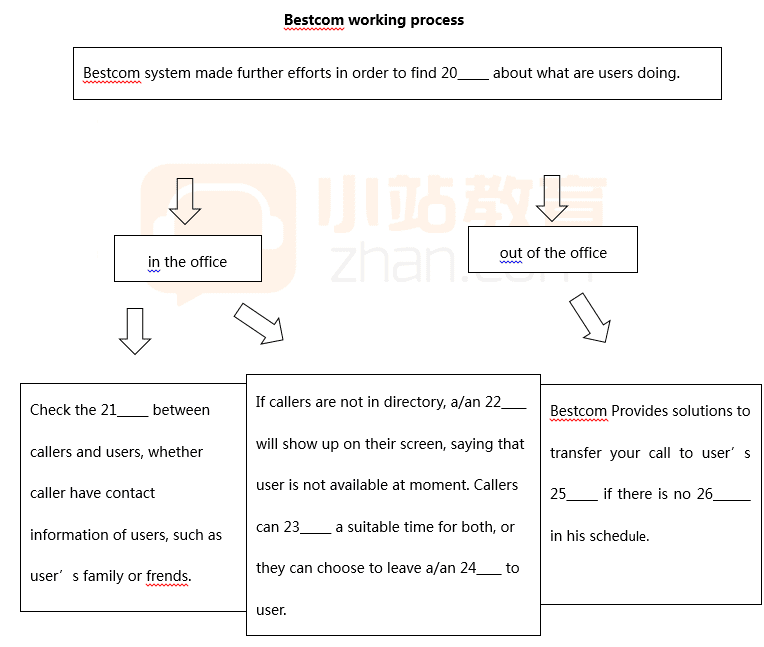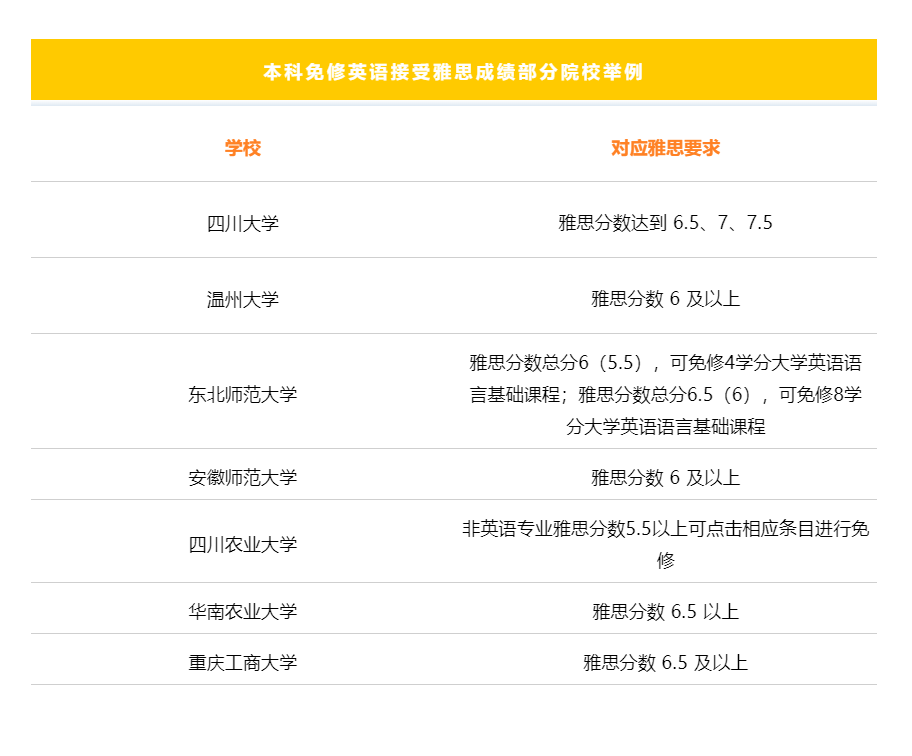细节题可以说是托福阅读部分出现频率相当高的一个题型了。几乎每篇阅读文章都会或多或少地包含几道细节题。今天小编给大家带来了托福阅读高频细节题2种常见提问方式应对技巧实例讲解,希望能够帮助到大家,下面小编就和大家分享,来欣赏一下吧。
托福阅读高频细节题2种常见提问方式应对技巧实例讲解
托福阅读细节题考点分析
在学习托福阅读细节题的解题思路之前,我们首先要了解细节题对于考生的能力考查到底在哪里。在小编看来,细节题考查的核心要点是大家在文章阅读过程中对于细节信息的敏感度以及考生准确返回原文定位到细节的能力,这种能力在考生以后研究生阶段学业中需要阅读大量文字类资料并准确寻找到其中关键性信息时会很有价值,因此细节题可以说就是针对考生是否具备这种能力而设置的题型。
托福阅读细节题两种常见提问方式实例讲解
托福阅读细节题从提问方式上主要可以分为两类,第一类难度较高,要求考生对问题的所有选项都进行返回原文查找的步骤从而得出正确答案。这类题目小编称为多选项返回定位题,比如以下这道题目就是如此:
Asia is the largest land mass on Earth. It contains one-third of the world’s land. Much of the land is uninhabited. But Asia holds more than 60% of the world’s people. It has 48 different countries, including China and India. They are the most populous countries in the world. Asia is also the birthplace of the world’s five major religions. They are Hinduism, Buddhism, Judaism, Christianity, and Islam.
Which of the following is true of Asia?
A. It is the largest continent on Earth.
B. One-third of the world’s population lives there.
C. It takes up 60% of the world’s land mass
D. It is the home of 48 different religions.
可以看到这道题目本身并没有给出任何解题线索和关键词,考生需要把四个选项逐一返回原文核对查找以后,才能得出正确答案。这类题目之所以难度较高,就是因为它会消耗大家比较多的时间,本身考试时间不足答题节奏落后于原定进度的同学面对这类题目很容易因为心浮气躁,想要加速又加不了而出现错误。而且这类题目有个特点,那就是哪怕选项A就是正确选项,考生也会忍不住再去把其它选项也逐一核对确认一下再做出选择,这其实就是利用了考生患得患失的解题心理。以上题为例,A选项It is the largest continent on Earth.和文章第一句Asia is the largest land mass on Earth.其实就是一个意思,但哪怕考生心中已经比较有把握,也还是需要再看完其它选项才行。这样的题目相当消耗时间,大家如果遇到请务必注意时间分配方面的问题。
第二类细节题难度就比较低了,这类题目会给出明确的提示性线索和关键词,考生根据关键词直接返回原文就能找到对应题目的正确答案,在较短时间内就能做完。这类题目小编称为明确线索定位题,比如下面这道:
A routine vaudeville show usually began with a silly act, such as acrobats or trick bicyclists. This allow audience members to arrive late and find their seats. The show peaked in the middle with the “headliner”. This act was usually the best in the show. The show would conclude with a “chaser” act. This act was considered good enough to feature but dull enough to make audiences leave the theater.
According to paragraph 2, why did a vaudeville show usually start off with a silly act?
A. Because the audience needed time to arrive and find their seats.
B. Because the audience preferred to begin with silly acts.
C. Because silly acts got the audience ready for serious ones.
D. Because that was the only type of act the theater owner could find.
这道题目不仅给出了关键词线索a silly act,而直接给出了对应内容所在的段落位置,对于考生来说定位返回就变得相当简单了,考生只要带着问题读一下原文,找到答案以后再从选项中寻找出相应的内容就可以顺利解题。比如上面这道题问的是威慑呢么杂耍表演开场都要先来个silly act?考生从原文第二句This allow audience members to arrive late and find their seats.就可以直接找到答案,甚至不用读完整段内容就能获得自己需要的信息,接下来看到选项A也正好符合要求,那么答案一下子就能确定出来,整个解题过程不会超过30秒。
以上两种托福阅读细节题小编希望大家能够通过实例了解其差异和相应的解题思路。细节题是托福阅读考试中比较关键的题型之一,考生如果能够高效且正确地解答这类题目,对于确保和提升托福阅读成绩都会是一大助力,还请大家多花心思认真学习和掌握好应对这个题型的解题思路。
托福阅读背景材料之如何珍惜时间
If the real work that needs doing is offline, disable the internet for an hour at a time.
如果这件事情不需要上网就可以完成,把网断掉。
Turn email checks into an hourly habit, not an “as the box gets mail” habit.
延长查看电子邮件的周期。
Don’t answer your cell phone when working on something important. Call back later.
如果手头的工作很重要,工作期间不要接电话,回头再打过去就是了。
If you can’t work at work, negotiate finding a new place to get things done.
如果你的工作环境让你不能工作,换个没人打扰的地方。
Television means: “I don’t need this time and it doesn’t matter to me.” (Almost always. Really.)
看电视意味着“这段时间我浪费了也无所谓”。
Budget your entertainment time vs. production time. Never cheat the other.
平衡你的娱乐和工作时间。
Examine every opportunity along the lines of time vs. projects already underway.
时时检查你的时间安排和现在已经进行中的项目。
Try working part of your day in “off-hour” times, to get more done with fewer people around.
以小时为单位划分你的工作时间,用更少的人做更多的事情。
专心的窍门
Write your goals clearly. Post them in eyeball view of where you work most.
清楚的写下你的目标。放在你的眼皮底下。
Spend time with focused people. Meet and befriend those who are where you want to be.
多和专心工作的人在一起。
Consume as much material about your prime focus as you can budget.
尽量把资源用在主要目标上,把时间花在刀刃上。
Analyze your past experiences. Be clear. List your successes. Examine your failures.
回顾总结以往的成功和失败经验。
Stay true to a particular vision of what you want to do.
清楚明白你想要得到的是什么。
Don’t give up too early.
不要太容易放弃。
Envision your success. Write about it. Then read that daily or weekly.
想象一下成功后的样子,写下来,每天读读。
Learn how to “chunk.” Hit each milestone and move to the next. Be methodical.
学会把大事划分为几个阶段,完成一个阶段,再进入下一个。
Develop habits around success and drive.
养成好习惯。
Recharge your batteries with good sleep and food.
吃好睡足。
Develop your relationship with your family. It nourishes the other goals.
维持家庭关系。这是你完成其它工作的保障。
托福阅读背景知识之如何保持好记忆
Being in a good mood decreases the brain's working memory, US researchers say.
“This explains why you might not be able to remember a phone number you get at a party when you are having a good time,” Elizabeth Martin, a doctoral student of psychology at the University of Missouri, says in a statement. “This research is the first to show that positive mood can negatively impact working memory storage capacity.”
The researchers gauged study participants’ mood before and after showing them a video clip - some saw a bit of a stand-up comedy routine, while others saw a video on how to install flooring.
Those who viewed the comedy routine were in significantly better moods after viewing the video, while the mood of flooring group had not changed. Both groups were then given a memory test.
The study, published in the journal Cognition and Emotion, found those who watched the comedy routine performed significantly worse on the task.
美国研究人员称,好心情可能会降低大脑的工作记忆(属程序性记忆、短时记忆,是一种短暂时刻的知觉)能力。
“这就能解释为什么明明在派对上玩得很开心,却记不住从派对上得到的电话号码,”密苏里大学心理学博士伊丽莎白马丁在一份报告中指出。“该研究首次说明,积极情绪有损于工作记忆容量。”
研究人员在受试者观看视频片段前后对其情绪进行了测量。其中一部分受试者所看的是轻松喜剧节目,另一些人所看的视频则关于如何铺地板。
那些看了喜剧的受试者观后情绪更佳,而“地板视频”受试者观前观后情绪并无波动。两组都接受了记忆测试。
托福阅读背景材料之性格影响外表
If you exhibit positive traits such as honesty and helpfulness, the chances are that you will be perceived as a good looking person, for a new study has found that the perception of physical attractiveness is influenced by a person's personality.
The study, led by Gary W. Lewandowski, Jr, found that people who exhibit negative traits, such as unfairness and rudeness, appear to be less physically attractive to observers.
In the study, the participants viewed photographs of opposite-sex individuals and rated them for attractiveness before and after being provided with information on personality traits.
After personality information was received, participants also rated the desirability of each individual as a friend and as a dating partner.
Information on personality was found to significantly alter perceived desirability, showing that cognitive processes modify judgments of attractiveness.
"Perceiving a person as having a desirable personality makes the person more suitable in general as a close relationship partner of any kind," said Lewandowski.
The findings show that a positive personality leads to greater desirability as a friend, which leads to greater desirability as a romantic partner and, ultimately, to being viewed as more physically attractive.
The findings remained consistent regardless of how "attractive" the individual was initially perceived to be, or of the participants' current relationship status or commitment level with a partner.
What would you think of this lady's physical attractiveness if she exhibited bad personal traits?
"This research provides a more positive alternative by reminding people that personality goes a long way toward determining your attractiveness; it can even change people's impressions of how good looking you are," said Lewandowski.
如果你表现出诚实和乐于助人等美好品质,那么别人会觉得你的外表也很迷人。一项最新研究发现,一个人的性格会影响别人对他或她的外表吸引力的看法。
该项由盖里•W•勒万多维斯基负责的研究发现,人们认为,表现出不诚实和粗鲁等恶劣品质的人外表也不够吸引人。
研究对象首先观看了一组异性的照片,随后分别在得知照片中人物的性格特点之前和之后给他们的外表评分。
研究对象在得知照片中人物的性格特点后,还对与其中每个人交朋友或做恋人的期望值进行了评分。
研究人员发现,有关人物性格特点的信息大大改变了之前的喜好度评分,研究对象的认知过程改变了他们对照片中人物外表的评价。
勒万多维斯基说:“总的来说,如果人们认为一个人的性格较好,那么他们会觉得无论与这个人做朋友还是做恋人都更合适。”
研究结果表明,人们更期望与性格较好的人交朋友、成为恋人,从而会认为他们的外表更迷人。
无论照片中人物给人的“第一印象”怎样、或者研究对象目前的情感关系状况以及与伴侣的亲密程度如何,研究结果都是一致的。
勒万多维斯基说:“该研究提出了一个更为积极的观点,它提醒人们,性格在很大程度上能决定你的吸引力;性格甚至能够改变人们对于你外表的印象。”
托福阅读高频细节题2种常见提问方式应对技巧实例讲解
上一篇:托福阅读词汇如何背记
下一篇:返回列表






